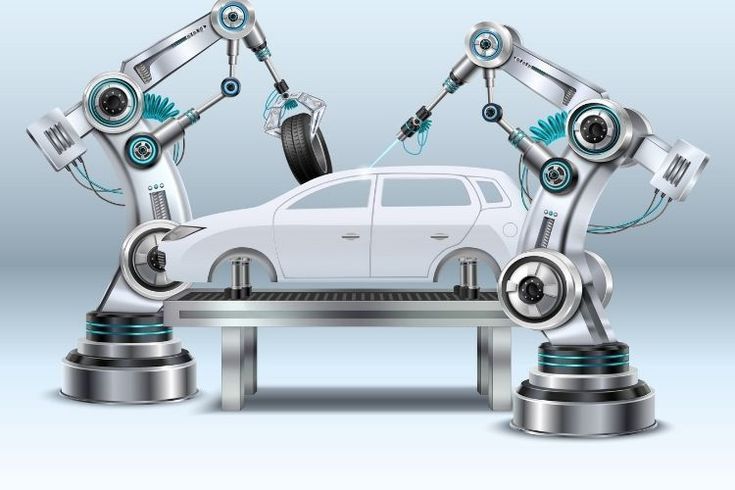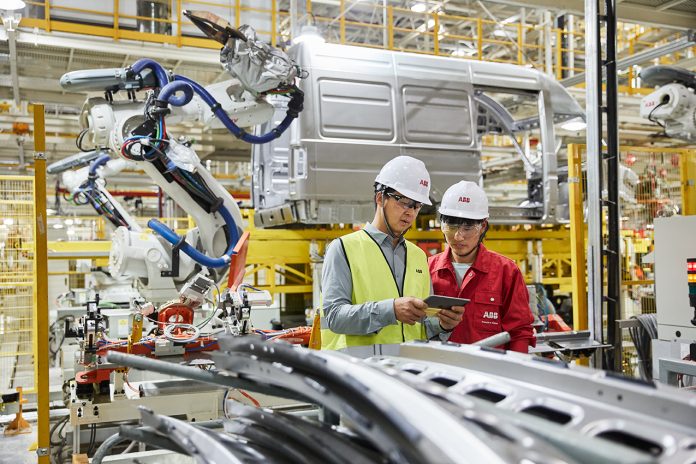Dear Readers! In connection to my previous articles with the title “Know your Vehicle” focusing on the human touch behind automotive excellence and customer service, a customer-centric approach leads the customer smile. Let’s embark on a journey that unveils the surprising human touchpoints within the seemingly automated automotive manufacturing world.
We will discover how human ingenuity and expertise work hand-in-hand with cutting-edge technology to create the vehicle you know and love. In the past, owning a car meant imitating a bond with a complex machine, a relationship built on grease-stained hands and basic mechanical knowledge. Today, however, vehicles are aces of engineering, arranged by a symphony of electronics, but fear not! “Know Your Vehicle” is not just about understanding complex systems, this is about appreciating the vital role humans still play in bringing your car to life.At the “Know Your Vehicle” point, every component, every detail, is scrutinized with care and expertise, ensuring that each vehicle meets the highest standards of quality and performance. It’s a moment where the soul of the automobile is imbued with the expertise of skilled artisans, who bring decades of experience and craftsmanship to bear on every vehicle that rolls off the assembly line. From the precise alignment of body panels to the flawless finish of the paintwork, every aspect of the vehicle is meticulously inspected and perfected, reflecting a commitment to excellence that is the hallmark of automotive manufacturing.
The automotive industry is undergoing a significant transformation, driven by factors like electric vehicles (EVs), automation, and digitalization. This transformation is reshaping everything from how cars are designed and manufactured to how we drive and interact with them. Imagine a world where your car seamlessly integrates with your digital life, where safety features become guardian angels on the road, and where the very concept of “ownership” might evolve. To navigate this changing landscape, manufacturers are placing a strong emphasis on reskilling and upskilling their workforce.
This driving force highlights the importance of investing in human capital as a key driver of innovation and growth in the automotive industry, as by prioritizing continuous learning and professional development, companies empower their employees to adapt to change, embrace new technologies, and drive meaningful impact within their organizations. As the industry continues to evolve, reskilling and upskilling initiatives will play a pivotal role in shaping the future of auto manufacturing and ensuring its long-term sustainability and success. Here’s a closer look at this crucial initiative, while the specific skills addressed in reskilling and upskilling programs will vary depending on the industry, the core concept is applicable across various sectors. In the ever-evolving landscape of auto manufacturing, where technology reigns supreme and innovation drives progress, the imperative of reskilling and upskilling the workforce emerges as a cornerstone of success. As we conclude our exploration of “Reskilling and Upskilling the Workforce: A Driving Force in Auto Manufacturing,” it becomes evident that investing in human capital is not just a strategic choice but a necessity for thriving in the digital age.
The scope of reskilling and upskilling is vast and constantly evolving, and the scope of reskilling and upskilling encompasses not just filling skill gaps but also fostering a culture of lifelong learning, adaptability, and a future-proof workforce prepared to thrive in an ever-changing global economy., but it can be broadly categorized into these main areas.
(i) Bridging the Skills Gap: The primary aim is to equip the workforce with the skills required to operate effectively in an environment driven by technological advancements. This might involve training for Electric Vehicle (EV) technology: Battery systems, charging infrastructure, and maintenance of EVs, Automation, and Robotics Programming, operation, and maintenance of robots used in manufacturing processes, data Analysis, and understanding data, using data analytics tools, and working with artificial intelligence applications in manufacturing, Protecting manufacturing systems and data from cyber threats.
(ii) Addressing Skill Deficiencies: Reskilling and upskilling programs can also target specific skill gaps within the existing workforce. This could involve, Software proficiency: Training employees on new software programs used in design, engineering, or manufacturing processes. Advanced manufacturing techniques: Equipping workers with the knowledge and skills required for innovative production methods like 3D printing or additive manufacturing. Safety protocols: Ensuring workers are up-to-date on safety procedures in a changing manufacturing environment.
(iii) Promoting Adaptability and Futureproofing: The scope extends beyond addressing immediate skill needs. It aims to create a more adaptable workforce prepared for future changes. Developing a Growth Mindset: Encouraging a culture of continuous learning allows employees to embrace new technologies and adapt to evolving job requirements. Building Soft Skills: While technical skills are essential, soft skills like critical thinking, problem-solving, communication, and collaboration are crucial for success in any industry. Reskilling and upskilling programs can emphasize these areas to create a well-rounded workforce. Cross-Training: Equipping workers with skills from different areas can increase their versatility and allow them to take on broader roles within the organization.
Why Reskilling and Upskilling are Essential: By prioritizing reskilling and upskilling, automotive manufacturers can ensure their workforce is equipped to navigate the transforming landscape of the industry, drive innovation, and maintain a competitive edge well into the future, these exciting changes, while paving the way for a more sustainable and efficient future, also necessitate a significant shift in the skillset required by the workforce. Here’s a breakdown of why reskilling and upskilling are essential for the industry to thrive. EVs, automation, and data-driven manufacturing processes require skillsets that may not have been prevalent before. Workers need to be equipped to handle these new technologies effectively. The automotive industry is constantly evolving. Reskilling and upskilling ensure that the workforce possesses the necessary skills to remain relevant and adaptable in the long run. The rapid pace of technological advancement can create a gap between the skills employers need and the skills workers possess. Reskilling and upskilling bridge this gap, ensuring a qualified workforce.
How Manufacturers are Reskilling and Upskilling: By implementing these strategies, manufacturers can empower their workforce to adapt to the changing landscape of the automotive industry. A reskilled and upskilled workforce will be well-positioned to drive innovation, maintain a competitive edge, and ensure the smooth operation of tomorrow’s automotive marvels. The company needs to develop and offer targeted training programs that focus on relevant skills like EV technology, robotics, data analysis, and cybersecurity. These programs can range from short workshops to comprehensive certification courses. Collaboration with universities, technical colleges, and vocational training centers allows manufacturers to develop customized training programs that address their specific needs. Mentorship programs and on-the-job training opportunities can equip existing workers with the necessary skills to transition to new roles or adapt to changing job requirements. Bite-sized learning modules and online resources provide flexible learning opportunities for employees to acquire new skills or refresh existing knowledge at their own pace.
Benefits of Reskilling and Upskilling: A well-trained workforce equipped with the latest knowledge and skills can leverage new technologies more effectively. This translates to streamlined processes, optimized production times, and ultimately, a boosted bottom line, similarly a well-trained workforce can leverage new technologies more effectively, leading to improved production processes and higher output. Furthermore, upskilled employees can contribute to innovation by applying their knowledge of new technologies to develop better products and processes. The most important factor is satisfaction, opportunities for learning and growth can boost employee morale and job satisfaction, leading to a more engaged and motivated workforce.By investing in reskilling and upskilling, manufacturers can reduce their dependence on hiring from outside, potentially saving time and resources.
Continuous Learning for Team: By prioritizing reskilling and upskilling, automotive manufacturers can ensure their workforce is equipped to navigate the changing landscape of the industry, drive innovation, and maintain a competitive edge in the years to come. The need for reskilling and upskilling in the automotive industry is likely to be an ongoing process. As technology continues to evolve, manufacturers will need to adapt their training programs and ensure their workforce possesses the skills necessary to thrive in the future.
Focus on Soft Skills: In addition to technical skills, soft skills like critical thinking, problem-solving, and communication remain crucial for success in the automotive industry. Building a Culture of Learning: Encouraging a culture of continuous learning within the organization can foster a growth mindset and motivate employees to embrace new challenges.
Personalized Learning Paths: Tailoring training programs to individual needs and learning styles can enhance the effectiveness of reskilling and upskilling initiatives.
Takeaway from this article:

The automotive industry is undergoing a significant transformation unlike anything seen before, driven by technological innovation, changing consumer preferences, and global sustainability goals. As we navigate this period of change and uncertainty. In the face of rapid technological change and shifting industry dynamics, companies must recognize the value of their most valuable asset—their employees—and empower them with the knowledge, skills, and tools needed to navigate the complexities of modern manufacturing. Reskilling programs enable workers to adapt to new roles and responsibilities while upskilling initiatives ensure that existing skill sets remain relevant and competitive in a rapidly changing environment.
As we are aware the future of mobility is electric, autonomous, and connected. By embracing these trends and embracing a spirit of innovation and collaboration, manufacturers can not only survive but thrive in the rapidly evolving automotive landscape, shaping the future of transportation for generations to come. Successful reskilling and upskilling initiatives often involve collaboration between auto manufacturers, educational institutions, government agencies, and industry associations. By pooling resources and expertise, stakeholders can develop comprehensive training programs that address the industry’s specific needs and provide workers with the skills and certifications required to excel in their roles. Public-private partnerships, apprenticeship programs, and on-the-job training initiatives are just a few examples of collaborative efforts aimed at building a skilled and resilient workforce for the future.
Written by Muhammad Rafique, Head of Production and Maintenance Foton JW Auto Park (Pvt) Ltd, Lahore, Pakistan.
This exclusive research article has been published in Automark Magazine’s June-2024 printed edition too.
